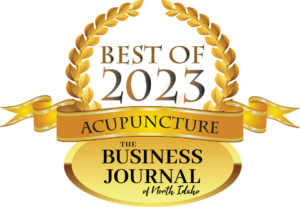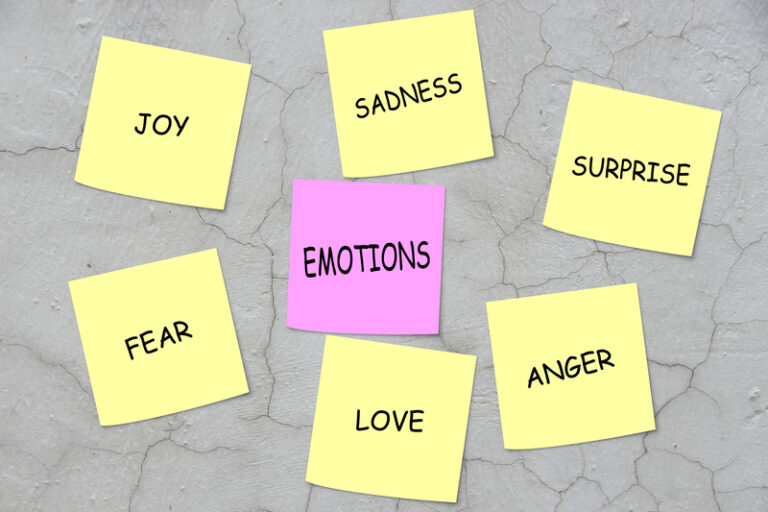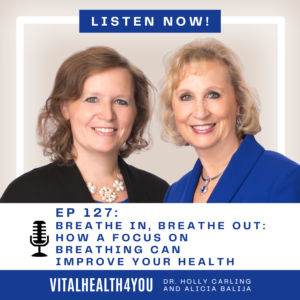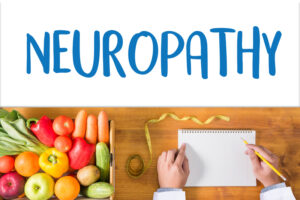There are many reasons for stress, anxiety and depression. What we eat and drink, or what we don’t consume can make the difference between a happy, healthy mental state or one where we just want to crawl in a hole and forget about life for awhile.
“Every mental state is affected by brain chemistry, from sleep to euphoria, and from depression to anxiety. Supplying ourselves with brain nutrients, [and eliminating harmful foods and substances] is an excellent way to enhance and improve our own [mental and emotional] performance.” – Dr. Michael LeVesque.
If anxiety, stress or depression is disproportional to life’s circumstances and there are no obvious underlying reasons for it, psychological and biochemical disturbances should be investigated. Alternative medicine has a lot to offer in this respect.
First of all, we’ll explore some issues that effect mental well-being adversely. Then we’ll look at what we can do to improve our mental state.
Causes of Depression, Anxiety and Stress Include: Blood sugar handling issues, dehydration, poor dietary habits, mineral deficiencies, protein deficiency, allergens, imbalanced colon health, digestive issues, lack of sunlight, poor circulation to the brain, hormonal imbalance, certain medications, environmental toxins, a toxic body, lack of sleep, low immunity and infections.
Blood Sugar: Hypoglycemia is essentially a state of malnutrition to the body and especially the brain. Symptoms associated with hypoglycemia include any of the following: fatigue, foggy thinking, shakiness, forgetfulness, drowsiness, exhaustion, decreased short term memory, difficulty focusing or concentrating, depression, crying spells, indecisiveness, in-coordination, dizziness, blurred vision, unprovoked anxiety, numbish feeling in hands, arms, face, tingling lips, nervousness, irritability, stomachache or nausea, headache, cool sweating, rapid heartbeat, confusion or disorientation, weakness and hunger. In more advanced hypoglycemia, symptoms also include slurred speech and tremors.
The cause is missed meals or meals made up of carbohydrates with no protein to stabilize it. The best solution is proper meal planning and don’t skip meals!
Not a solution: Artificial Sweeteners and especially Aspartame. Consuming this stuff mostly affects the brain. More than 85% of the complaints currently registered with the FDA is regarding Aspartame. They include over 73 different symptoms and now several dozen deaths. Aspartame depresses serotonin levels, causing severe depression, severe mood swings and violent rages and schizophrenia. Memory Loss is the single greatest complaint. Close behind is headaches and migraines. In an epidemiological study which appeared in the Journal of Applied Nutrition (in 1988) they found: 29% complained of confusion, memory loss or both, 25% severe depression, 23% extreme irritability, 19% severe anxiety attacks, 16% palpitations or tachycardia or both, 17% severe drowsiness and sleepiness, 16% marked personality changes. The list goes on and on.
Sucralose is hardly better. It is made up of one sucrose molecule to 2 chlorine molecules!
What is known is that it stores in body fat. In fact, 40% of sucralose is never eliminated! Studies have revealed that sucralose causes shrunken thymus glands (up to 40% shrinkage), enlarged liver and kidneys, atrophy of lymph follicles in the spleen & thymus, increased cecal weight, reduced growth rate, decreased red blood cell count, hyperplasia of the pelvis, extension of the pregnancy period, aborted pregnancy, decreased fetal body weights and placental weights, anti-fertility and neurotoxic effects, diarrhea, and contributes to lessened control of diabetes.
In addition, artificial sweeteners contribute to weight gain. Some say artificial sugars help with weight loss. On the contrary. According to Consumers Research Magazine “There is no clear-cut evidence that sugar substitutes are useful in weight reduction. On the contrary, there is some evidence that these substances may stimulate appetite.”
Water/Dehydration: The most powerful thing I can say about water is in this new research finding, in one sentence: As little as 2% dehydration results in 50% reduced performance. This was a study recently completed on military pilots. That’s incredible! They found that dehydration triggers fuzzy, short term memory, trouble with basic math, difficulty focusing on small fonts or even on the computer screen, fatigue, dizziness and headaches, and even milder dehydration will slow down your metabolism as much as 3% (which means food stays in your stomach longer). Blood is 55% serum and serum is 90% water.
Symptoms of moderate to severe dehydration include fatigue, dizziness and headache. The absence of these symptoms (which could also apply to other conditions in your body) does NOT mean you are not dehydrated. It simply means you’re not dehydrated to the point of being symptomatic. Thirst, by the way, is not necessarily a good indicator. In most Americans, the thirst mechanism is very weak, often not kicking in until the person is quite dehydrated. According to a study on athletes, by the time the thirst mechanism kicks in, it’s too late, you’re already quite dehydrated.
How do you know if you are dehydrated? Watch the color your urine is. It should be clear or just a hint of yellow coloring.
Eating veggies and fruit will help with hydration as fresh raw produce contains a high percentage of water. The perfect amount of water to drink is half your body weight in ounces per day. Drink that in fairly even amounts, consistently throughout the day.
Caffeine: Effects mental function, causes restlessness, nervousness, anxiety & irritability, causes panic disorders or states resembling panic disorders, rambling flow of thought and speech, stops headaches but also triggers headaches – severe ones at that! Although caffeine is used to keep us energetic and alert, its ability to override feelings of drowsiness and fatigue usually backfires the day after. Caffeine amps up the adrenals, which are what gives the energy, but then it slams the adrenals as a result. Long-term caffeine consumption depletes the adrenals and results in constant fatigue. Caffeine also disturbs normal sleep rhythms. It reduces Stage 4 and REM.
Sodas: Sodas incorporate many of the above problems. Mainly, sugar instability (contributing to hypoglycemia or diabetes), dehydration (it takes 6 gallons of water to buffer the effects of soda – where do you think it gets it from?), caffeine and also demineralization. Calcium, magnesium and phosphorus must be maintained in the proper balance for bone health. When too much phosphorus is in the blood, calcium is leached from the bones, causing osteoporosis. Calcium is needed to normalize the blood pH. In addition, when caffeine is added to sodas, calcium excretion in the urine increases by 25%. When sugar is added, urinary calcium loss almost doubled. Sodas are now considered the number one cause of osteoporosis in this country.
Essential Fatty Acids: In one Australian study (and many others have duplicated the results) they found that an essential fatty acid deficiency, especially low levels of Omega 3 fatty acids, were linked to depression, hyperactivity, ADD, violence, aggression, learning problems, memory problems, mood disorders, behavior problems, tremors, numbness, developmental delays, autism and other brain-related disorders. They also noted that these were corrected or improved by the introduction of EFA’s into the diet. In the absence of EFA’s the brain doesn’t have enough raw materials to make brain cells and the number of brain cells decrease, especially from generation to generation.
Minerals: Dr. William J. Walsh, Ph.D, senior scientist at Health Research Institute and Pfiefer Treatment Center, one of the leading US researchers in violent behavior, in the Chicago area found that elevated copper/zinc ratio; depressed sodium, potassium, manganese, magnesium and abnormal calcium, found in addition to violent behavior, poor stress control and academic underachievement; Deficiencies in copper, zinc and manganese as well as elevated sodium, potassium, iron, calcium, & magnesium caused impulsivity, irritability, drowsiness and depression. He stated the relationship with minerals, vitamins and amino acids that are essential to making neurotransmitters such as serotonin, dopamine and norepinephrine as the causative factor in violent behaviors. If severe levels cause violent behaviors, lesser levels cause lesser, but still present, adverse moods. Treatment with nutritional supplements showed improvement in 91% of compliant patients.
Iron & zinc keep the brain sharp. Declining iron levels result in decreased attention span and decreased ability to concentrate. Decreased levels of Zinc within only 3 weeks of a zinc-free diet decreases the ability to recall specific words. Antacids, in addition to being high in salt, deplete this critical iron and zinc, and also depletes calcium, folic acid, Vitamin D and Vitamin B12. Many other medications also deplete either iron or zinc and more.
I repeat from the opening line, “Every mental state is affected by brain chemistry, from sleep to euphoria, and from depression to anxiety. Supplying ourselves with brain nutrients, [and eliminating harmful foods and substances] is an excellent way to enhance and improve our own [mental and emotional] performance.
Symptoms of depression include deep sadness, poor concentration, feeling out of control, frustration, helplessness, lethargy, nervousness and self-recriminations. Depression is linked with biochemical imbalances in the brain of neurotransmitters, particularly dopamine, serotonin and norepinephrine. For example, deficits in serotonin can generate feelings of fatigue, despair and nervousness, and too much norepinephrine can give rise to mania.
Amino acids, vitamins and minerals play a role in encouraging neurotransmitter synthesis and many studies have shown that nutrients, found in whole, natural sources, are as effective as drugs in producing beneficial results. Effective nerve functioning requires a continuous supply of glucose, oxygen, Ca, Mg, Na, and KF to fire the nerve impulses.
Deficiencies in minerals cause: impulsivity, irritability, violent behavior, nervousness, self recriminations, despair, depression, sadness, emotional imbalance, feeling out of control or helpless, frustrated, manic, poor stress control, drowsiness, lethargy or fatigue, decreased ability to concentrate, decreased attention span, academic under-achievement.
Other minerals essential to mental and emotional health include: Vitamin A, Vitamin E, B Vitamins, Inositol, Vitamin C, Calcium, Copper, Iodine, Iron, Magnesium, Phosphorus, Potassium, Sodium Zinc, and Chromium.
In summary, you’ll never be as sharp as you can be without nutrients – especially minerals! But don’t try to micro-manage it! Don’t take extra amounts of zinc to sharpen fuzzy thinking at the expense of missing other equally vital nutrients. Take them as a whole and as a complex. Best balances are from whole foods or plants such as alfalfa, kelp, chlorella or wheatgrass juices that have been tableted into an easy to take pill. And don’t take junk vitamins like the ones found at your membership clubs and drug stores!
Herbs: First and foremost, it is important to use herbs in moderate doses and in rotation. All herbs become drugs if used in large doses and for long periods of time. Indeed, historically most drugs were isolated from herbs and plant sources.
HERBS FOR STRESS: Valerian, Chamomile, St. John’s Wort, Ginkgo Biloba, Passion Flower are the best, followed by Catnip, Skullcap, Anise (licorice), Bach’s Rescue Remedy, Hawthorne Berries, Linden Flowers, Chamomile, Peppermint, Valerian, Feverfew, Willow Bark, Oats or Oatstraw Tea, Ginseng, Skullcap or Wild Yam.
HERBS FOR ANXIETY: Certain foods can worsen anxiety. Dairy products, chocolate, sugar, alcohol, wheat, salt, commercial salad dressings, ketchup (catsup), mustard, coffee, black tea, and red meat may worsen anxiety symptoms. High-nutrient foods such as vegetables, brown rice, whole grains, seeds and nuts, fruits, poultry, fish, olive oil, and flax seeds/oil can help relieve stress and prevent anxiety. If you feel anxious, jittery, depressed or fatigued after eating a particular food, don’t eat it.
Herbs: Kava Kava, Passionflower (Passiflora), valerian root, Nutrients such as calcium and magnesium, B-vitamins, niacinamide, and chromium, can have a calming effect.
HERBS FOR “DEPRESSION”: St. John’s Wort and Kava Kava mostly, however, Oat Straw, Purslane, Rosemary, Sage, Thyme, Yohimbine, Balm, Basil, Black Hellebore, Borage, Clove, Fo-ti-tieng, Ginger, Licorice, and Damiana also have been known to be helpful.
Protein: In a study done on mental disorders, protein deficiency was identified as one of the causative factors. They recommended .5kgs protein per lb of body weight for aggressive, hyperactive – type personalities, and 1.0kgs protein for sluggish, fatigued, passive personalities.
High protein diets tend to diminish brain function. The main fuel of the brain and nervous system is glucose, which is broken down from carbohydrates. On a high protein diet, less carbohydrates are available and the body has to strip either fats or protein from delicate organs to supply the brains needs. In the body attempt to not break down all its own tissues, it starts to partially burn down the fatty acids (called Ketones). This results in ketosis. Ketosis makes the blood more acidic which can cause potentially serious side effects such as headache, dizziness, fatigue and if severe enough for long enough it can cause death. So too much protein is not much better than a deficiency is. Single amino acid supplements can cause imbalances that may also interfere with normal absorption of food-derived amino acids to the brain. They are generally classified as “unsafe” by the FDA.
Synthetic or Fractionated Vitamins: Drain your body of resources. They leave you more depleted, especially mentally, than if you had taken nothing at all.
Medications:
- Decongestants and Diet Pills. PPA’s (phenylpropanolamine) found in both decongestants and diet pills cause restlessness, headache, dizziness, disorientation, confusion, agitation and even hallucinations.
- Antihistamines: The main side effect is drowsiness, but also depression & dizziness. Decongestants tend more to make you jittery or nervous, while cough suppressants can have a similar effect as alcohol and tend to make you drowsy as well. Some types of antihistamines and decongestants contribute to poor sugar control, especially increased blood sugar.
- Allergens: Allergy specialists successfully treat individuals with mental illness by isolating foods and chemicals in the environment which induce the mental problems. Allergic reactions may be a factor in criminal behavior. In some cases, the offending food does not cause mental reactions until hours after being eaten. This is called “masked food allergy.” Do not under-rate the allergy factor!
Colon Health & Autointoxication: Autointoxication and constipation are contributing factors in mental illness. Symptoms which are alleviated by proper colon health range from mental sluggishness to hallucinations. Even schizophrenia and other mental disorders can be greatly lessened.
There is a direct relation between the transverse colon and the brain. When the colon is clogged, mental illness is triggered. Eliminate the congesting “glue foods”. These tend to clog the colon, produce a buildup of mucous and toxins in it, and lead to mental problems. Such foods include white flour, sugar, red meat, peanuts, and dairy products. To improve colon health, start by eating an “aseptic” diet – fruit only for 3-4 days, then slowly re-introduce back non-“gluing” foods. Saunas or colonics also help.
In Summary:
- Avoid use of the word “Depression”. Redefine the emotions that you feel (is it sadness, anger, fear, etc?)
- When someone angry, ask “is this about me?” Generally it’s not. Don’t let it settle on you.
- When distressed about something, ask “is there anything I can do about this?” If yes, take action NOW, if no, let it go.
- If feeling overwhelmed, break responsibilities apart into bite-sized pieces.
- Find a peaceful place in you as many times a day that you can, even if for only 30 seconds. Breathe. Relax.
- Do something special for yourself once per week: bath, massage, quiet hike, listen to soft music and do nothing else, read a good book.
- Take herbs that will help.
- Drink ½ your body weight in ounces of water every day (max 100 oz.).
- Consume whole food minerals and supplements, avoid synthetic and fractionated vitamins.
- Avoid: Coffee, alcohol, sodas and refined sugars, margarine & hydrogenated fats, artificial sugars.
- Check medications.
Eat a good diet. That means: Avoid all processed, junk, and fried foods; Do not use white flour or sugar foods. Work towards balancing blood sugar; Eat a high-fiber diet, including plenty of fresh raw vegetables and quality protein; Complex carbohydrates in the diet are important to keep the blood sugar level; Eat lots of mineral-rich foods; Consume quality Essential Fatty Acids; Keep your colon clean; Get outdoors, even if clouds occlude the sun; Do mental emotional exercises.
©2005 Holly A. Carling, O.M.D., L.Ac., Ph.D.







